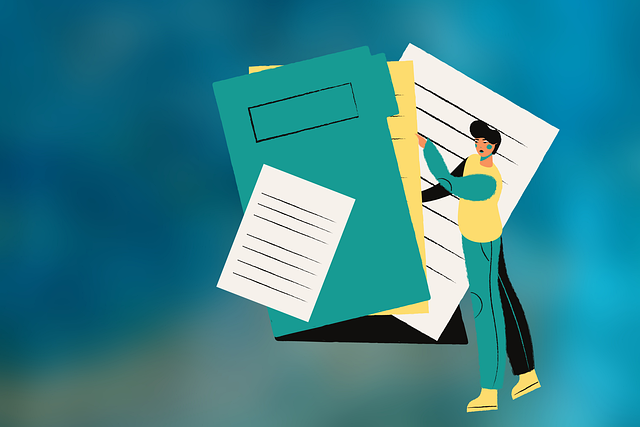Artificial Intelligence (AI) is transforming construction industry fraud management through advanced AI fraud detection for subcontractor invoices, utilizing machine learning algorithms to analyze data and identify fraudulent activities. This technology enhances financial record accuracy by real-time monitoring of suspicious transactions. In landscaping, AI integrates weather data to design adaptive, sustainable landscapes that respond to changing climates. By predicting extreme weather events, AI optimizes irrigation systems and plant selections for minimal maintenance. For invoicing, AI fraud detection ensures legitimate charges related to climate-responsive projects, streamlines the process with automated data entry and smart contracts, and predicts optimal landscape designs based on historical weather data.
In today’s digital age, Artificial Intelligence (AI) is transforming various industries, and landscaping is no exception. This article explores the integration of AI in weather-adaptive landscaping, focusing on two key aspects: fraud detection and efficient invoicing processes. By harnessing AI capabilities, landscapers can enhance their operations. Understanding how AI analyzes patterns in subcontractor invoices can prevent fraud, while incorporating weather data enables adaptive designs that thrive in changing climates. These innovative approaches showcase the potential of AI to revolutionize the landscaping industry.
- Understanding AI's Role in Fraud Detection
- Integrating Weather Data for Adaptive Landscaping
- Implementing AI for Efficient Subcontractor Invoicing
Understanding AI's Role in Fraud Detection

Artificial Intelligence (AI) is transforming various industries, and its impact on fraud detection is no exception. When it comes to managing risks in construction projects, AI fraud detection for subcontractor invoices plays a pivotal role. By leveraging machine learning algorithms, AI systems can analyze vast amounts of data from invoices, contracts, and historical records to identify patterns indicative of potential fraudulent activities.
These advanced analytics enable real-time monitoring and flagging of suspicious transactions or discrepancies. For example, AI models can detect unusual spending trends, unexpected changes in vendor details, or invoice anomalies that might suggest falsified claims. This proactive approach not only saves time but also significantly enhances the accuracy of financial record-keeping, ensuring that construction projects remain secure from potential fraud and misuse.
Integrating Weather Data for Adaptive Landscaping

Integrating weather data into landscaping design and planning is a game-changer, offering both challenges and immense potential. With advancements in AI technology, it’s now possible to incorporate real-time weather information into adaptive landscaping features, ensuring outdoor spaces are not just aesthetically pleasing but also functional and resilient. This approach involves utilizing AI fraud detection techniques for subcontractor invoices to access and analyze historical and current weather patterns, allowing designers to create landscapes that adapt to ever-changing climatic conditions.
By predicting extreme weather events like heavy rainfall or intense sunlight, AI algorithms can trigger specific adjustments in the landscape. For instance, smart irrigation systems can be automated to conserve water during droughts or activate when rainfall sensors detect dry soil. Similarly, plant selections and placement can be optimized based on expected temperature ranges, ensuring plants thrive without excessive maintenance. This integration of weather data enhances the sustainability and longevity of landscaping projects, providing a dynamic and responsive outdoor environment.
Implementing AI for Efficient Subcontractor Invoicing

In the realm of weather adaptive landscaping, Artificial Intelligence (AI) can revolutionize invoicing processes by enhancing efficiency and security. AI fraud detection for subcontractor invoices is a game-changer, as it enables quick verification of expenses related to climate-responsive projects. By employing machine learning algorithms, the system can analyze patterns in typical invoice amounts during different weather conditions, flagging any anomalies that might indicate potential fraudulent activities. This proactive approach ensures that only legitimate charges are approved, reducing financial losses for both landscaping firms and clients.
Implementing AI in this context streamlines the invoicing cycle by automating data entry, error checks, and validation steps. Smart contracts can be integrated to facilitate automated payments once invoices clear the AI scrutiny. Moreover, AI can learn from historical data to predict optimal landscape designs for specific weather scenarios, further optimizing the entire project lifecycle. This technology promises to make subcontractor invoicing transparent, secure, and swift in the dynamic world of climate-smart landscaping.
Artificial intelligence (AI) is transforming various sectors, and its applications in landscaping are no exception. By integrating AI with weather data, we can create adaptive landscaping solutions that enhance outdoor spaces. Moreover, AI streamlines processes like invoicing by detecting fraudulent activities among subcontractor claims, ensuring cost-effectiveness. As we navigate the evolving landscape of technology, these advancements promise a future where intelligent systems optimize our physical environments and business practices, from maintaining vibrant outdoor spaces to simplifying complex financial transactions.
